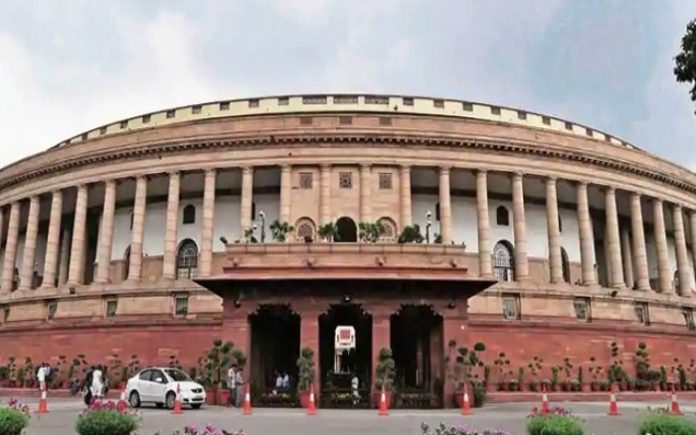Labour minister Santosh Kumar Gangwar, on Wednesday, introduced the Social Security Code Bill, 2019 in Lok Sabha, paving way for universalization of social security for 50 crore workers in the country. Union Cabinet had approved the bill last week.
The bill seeks to establish a social security fund and tap the corporate social responsibility fund to offer unorganized sector workers medical, pension, death and disability benefits via the employee’s state insurance corporation.
The bill once passed will empower the central government to exempt select establishments from all or any of the provisions of the code and makes Aadhaar mandatory for availing benefits under various social security schemes.
Once the bill is passed, the central government may “formulate and notify, from time to time, suitable welfare schemes for unorganized workers on the matter relating to life and disability cover; health and maternity benefits; old age protection; and any other benefit as may be determined by the central government”.
As per the bill, millions of organized sector employees may soon have the option of reducing their provident fund contribution — currently at 12% of basic salary — and therefore increase their take-home pay.
The rationale for allowing lower employee PF contribution is that higher take-home pay may boost consumption, which has been falling, dragging growth down. The Bill, however, retains employers’ PF contribution at 12%. Details on how low employees’ PF contribution can be brought down will be worked out after the passage of the Bill, ET reports.
Also, as per the Bill, fixed-term contract workers will be eligible for gratuity on a pro-rata basis. Currently, workers are not entitled to gratuity before completing five years of continuous service, as prescribed in the Payment of Gratuity Act, 1972.
The labour ministry has also done away with its earlier proposal to give subscribers to the Employees’ Provident Fund Organisation an option to switch to the National Pension System vis-à-vis the Employee Pension Scheme under EPFO. It said the current arrangement provides multiple benefits such as a higher rate of return and exempt-exempt-exempt status to funds invested in EPFO.
Besides, the ministry has also decided to retain the existing autonomy of EPFO and Employees’ State Insurance Corporation (ESIC), rejecting the proposal to corporatise them.
The Social Security Code subsumes eight central labour laws. They are the Employees’ Compensation Act, 1923, Employees’ State Insurance Act, 1948; Employees’ Provident Funds and Miscellaneous Provisions Act, 1952; Maternity Benefit Act, 1961; Payment of Gratuity Act, 1972; Cine Workers Welfare Fund Act, 1981; Building and Other Construction Workers Cess Act, 1996; and Unorganised Workers’ Social Security Act, 2008.
As part of its reform initiatives, the labour ministry has decided to amalgamate 44 labour laws into four codes — on wages, industrial relations, social security and safety, and health and working conditions.
As part of its reform initiatives, the labour ministry has decided to amalgamate 44 labour laws into four codes- on wages, industrial relations, social security and safety, and health and working conditions.
The Social Security Code is the last of the four labour codes that have been approved by the Cabinet. The labour code on wages was approved by Parliament in August while the code on occupational safety, health and working conditions has been referred to the parliamentary standing committee on labour. The Industrial Relations Code Bill, 2019, has been tabled in Parliament.









